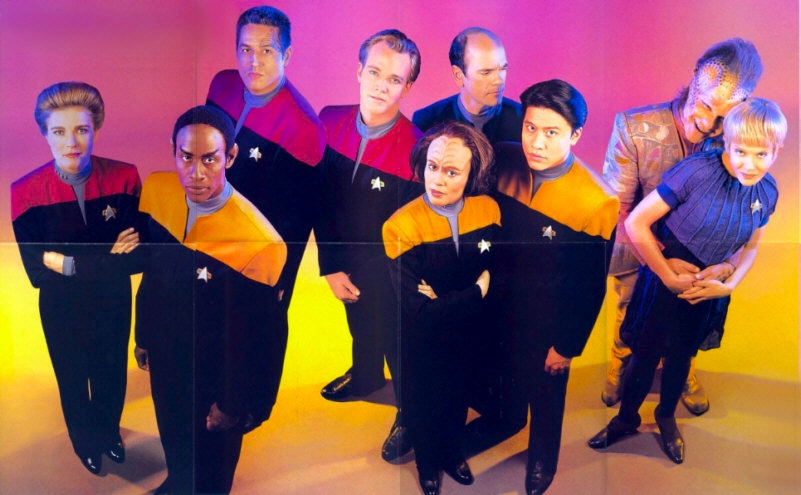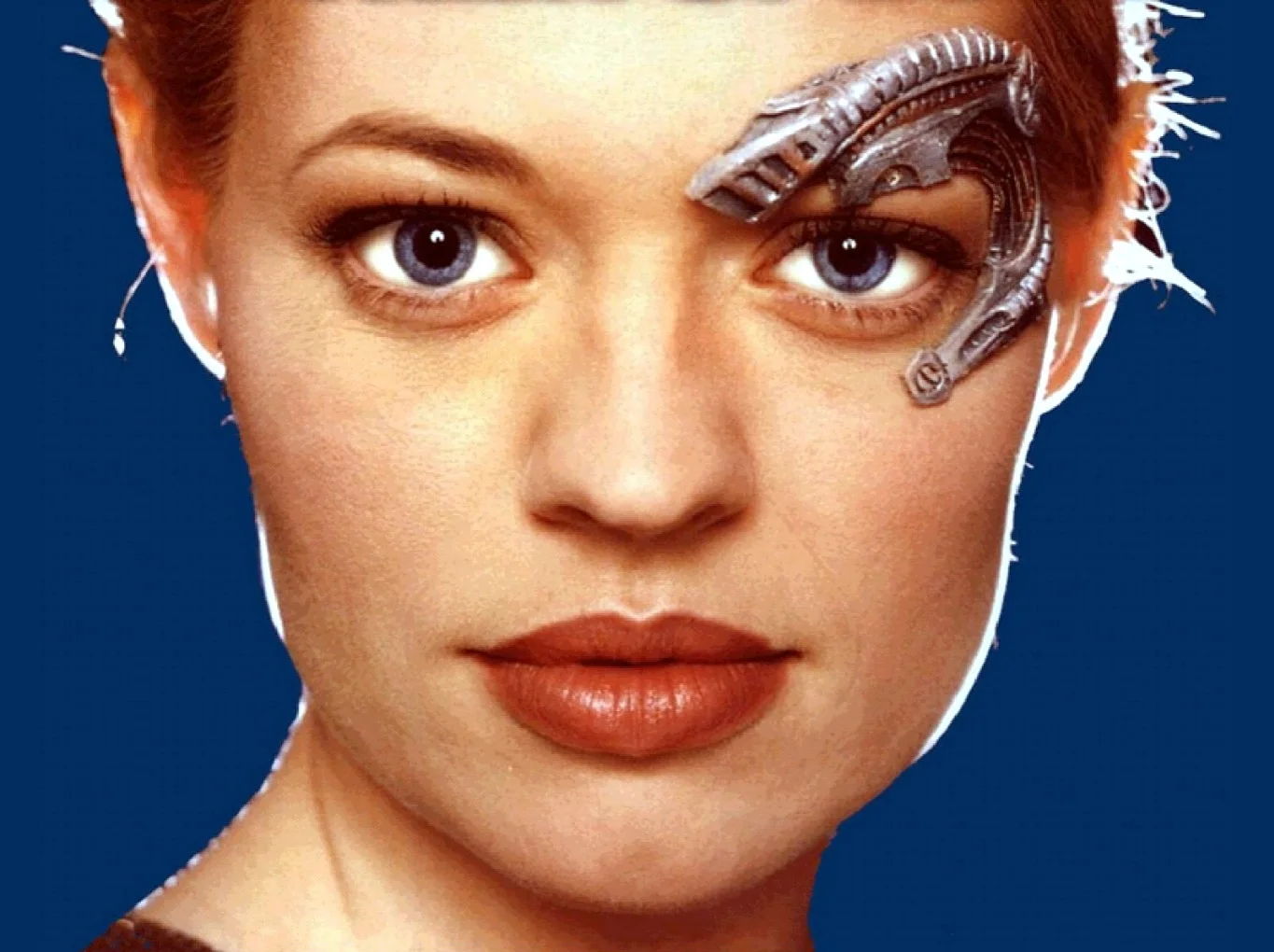by Shervin Sabeghi
Star Trek: Voyager is the much-maligned fourth incarnation of the Star Trek franchise. Starting in 1995 and ending its seven season run in 2001, Voyager never saw the same ratings as Star Trek: The Next Generation, nor the same high praise. Though it doesn’t suffer the same brutal slamming that Star Trek: Enterprise does, it still gets its fair share of derogatory jokes and scolding from many general Trek fans. I, however, regard Voyager very highly and it is by far my favourite Trek series – let’s take a look as to why.
Concept
In the show’s pilot, “Caretaker,” we see the new Intrepid-Class U.S.S. Voyager begin its first mission. It is a relatively routine task: to locate a Maquis ship containing Captain Janeway’s security chief, Tuvok, which went missing in the Badlands. This, however, leads to Voyager being transported seventy thousand light years from their previous position into the Delta Quadrant. This is an uncharted part of the galaxy, and a seventy-five year journey home. After finding the Maquis ship and unravelling a mystery with a Delta Quadrant alien world, Janeway sets a course for home along with the Maquis crew, who have agreed to embark on the journey home with Janeway’s crew, as a Starfleet crew.
Up to this point, and as far as concept goes, most fans agree that Voyager had something going for it. It brought the series back to Gene Roddenberry’s original vision: exploring strange new worlds and seeking out new life and new civilizations. With a 75-year journey ahead in uncharted territory, Voyager would certainly be going boldly where no one has gone before. There was also the Maquis, which seemed to promise conflict within the crew. And there was a set goal, something to strive for that had been clearly set from the beginning; something which was arguably missing from the previous shows. Unfortunately, that’s where the consensus amongst fans that Voyager was worth watching ends.
Execution
So Voyager goes into season one and it suffers the same sluggish start that all Trek series fall victim to. Granted, it has some really good episodes such as "Eye of the Needle" and "Faces," which display some of Voyager at its best, but season one is generally looked at poorly by fans. The main gripe they had (and still have) was that the conflict which supposedly should exist between the Starfleet and Maquis crew members is not shown sufficiently. And this is something that so many would apparently have liked to have seen. It seems that some fans were tiring of the perfect world and inoffensive nature of Star Trek. They got some of the tension they wanted in Deep Space Nine, but they wanted more. Unfortunately, Voyager didn’t provide.
Seasons two and three had much of the same ups and downs as season one. We see further character development, a range of diverse plots, some more of Janeway’s hairdos and, of course, “Threshold.” Though I do fairly like this part of Voyager’s run, I have to admit, there is a general air of drifting as if the writers didn’t really know what to do. And, as if to prove this, the ratings continually fell. Would this mean that Voyager would suffer the same early end of The Original Series? It most certainly would not. In came Seven of Nine, or the FanBoyEnticerator, if you will.
The arrival of Seven of Nine dramatically changed Voyager starting in the fourth season.The introduction of this new character seems like the exact risky act that could damage the integrity which Voyager had managed to hold well this far in its run. Bringing in the first female Star Trek captain in 1995, a move which is seen by many to display how much gender equality rights had improved in recent years, seems to have been absolutely contradicted in 1997 when a character that some call Seven of Boobs — with good reason — is brought in to bolster ratings. Fortunately, in this case, the terrible concept (or purpose) of something in Voyager is saved by the way it is executed. Instead of becoming the mindless sexy drone Seven could have easily become, we instead see a strong-willed, intelligent and, most importantly, proud woman -– something which is in no small part due to the fantastic way which Jeri Ryan portrays her. With the advent of Seven in season four, Voyager sees a remarkable change; as well as becoming very much Seven of Nine oriented, we get far more action, drama and relationships from here on. I consider seasons four to seven of Voyager to be some of the best of the whole of Star Trek.
Unfortunately, the fact remains that the phrase “untapped potential” often reverberates coldly when I think of what the critics have to say about Voyager. I don’t completely agree with that. When I want to think of any series, I prefer to think about what the series did do, rather than what the series did not do. What Voyager did do was come up with original and entertaining ideas for almost every episode. These were played out with interesting and believable characters (well, perhaps with the exception of Chakotay) which were consistently acted superbly by the Voyager cast. There’s nearly the perfect balance of story development and, though many may disagree, the development of characters. Yes, Voyager does follow a very episodic structure, but that just agrees with the general nature of Star Trek. Season six of Voyager displays wonderfully how self-contained episodes do indeed work; apart from its season premiere and season finale, season six has twenty-four consecutive single episodes which all work beautifully well as stories in themselves and, when watching season six as a whole, is in fact is entertaining and refreshing to be able to have a different story and a different plot for each episode watched.
Final Thoughts
Although the episodes of Voyager do drop in quality in season seven, the whole series is still generally entertaining, thought-provoking, funny and, most importantly, great to watch. It in no way let down the Star Trek franchise, nor can it be at all described as a “victim of Star Trek’s success.” Star Trek: Voyager was a credit to the franchise and will stand the test of time, just like the series before it.


